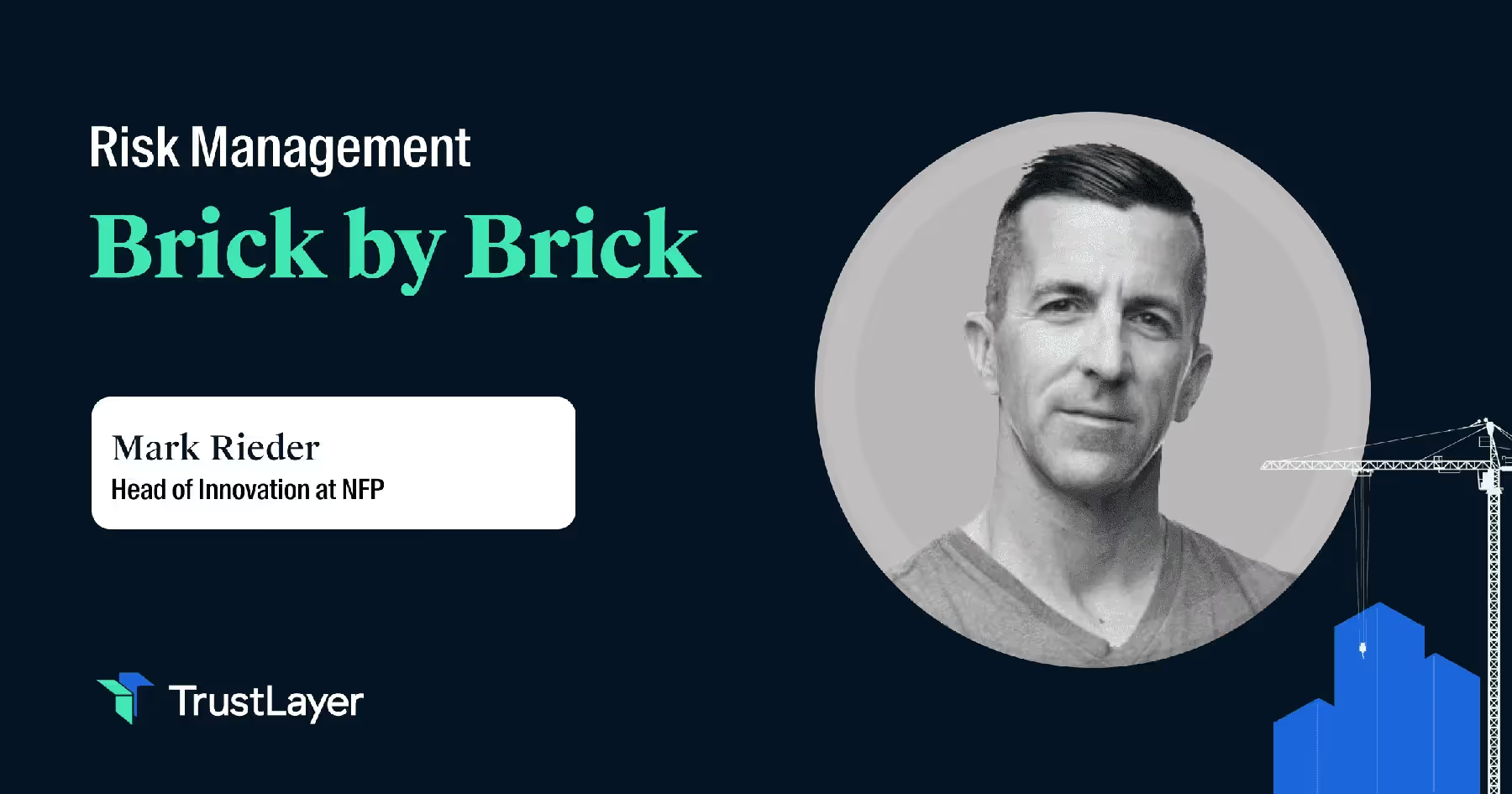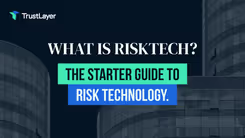Embracing Personalization in Risk Management with Mark Rieder

On this episode of Risk Management: Brick by Brick, host Jason Reichl and Mark Reider, Head of Innovation at NFP, explore how organizations can successfully lead change and drive digital transformation in today’s fast-paced market. Topics addressed include how to facilitate innovation, customer-centricity, and data management.
As a digital transformational leader, Mark Reider sees innovation as job security. It is vital to the growth and prosperity of any organization. Successful implementations of initiatives require leaders with specific skills and characteristics. According to Mark,
"number one is, I guess it's getting bored with status quo is something that does drive people to want to see change... it's also the desire to be better, to constantly try to strive to be a little bit better than the next person that's coming in, that just causes you to want to evolve your business model."
Solving Problems Like Q From James Bond
Trying to gain traction within your company can be painful at first, which is why Mark says leaders must have a strong resolve. "I think it's also not being deterred from detractors because there's plenty of people out there when you bring new solutions to the table that want to tell you it's a dumb idea, that does not mean that you want to be overconfident, but you also want to make sure that your feel good in standing up for yourself and your idea."
Moreover, leaders need to be relentless, patient, and optimistic to facilitate innovation. Mark says it takes an organization-wide effort and the "...willingness from the organization to change and be innovative as much as it takes people within an organization identifying and tell the story of change."

As Mark likes to say to his teams, "Innovation similarly, I think, is like being Q from the James Bond movies, not being James bond, you're equipping the team with frameworks and other elements so that when the time comes, and their context is put into the fray, they will use those frameworks and tactics to innovate versus going for the traditional sort of route, which usually is the ones that they know the most commonly."
He says that a large part of this is ensuring that the people you work with and those you work for have everything they need to thrive. Their ability to think outside the box and come up with creative solutions to complex problems can be invaluable in driving forward an organization's success.
"How do we get the folks to develop the ideas on their own? They're not flowing out of their brains yet. Otherwise, they'd already be doing that. I always tell people in the innovation space that's job security. So it's a good thing that you do get frustrated cause everybody had the ideas and moving forward. There would be no need for us to help drive it, but can't the innovations and team idea that gets pushed out and gets adopted? It has to be you bringing them along."
Customer Centricity: The Future of Data and Personalization
Jason and Mark also weighed on the future of data and personalization. Although the concept of customer-centricity has been swirling around for decades, only in recent years have companies in legacy industries like construction been able to take advantage of the opportunities it presents. Jason says, "it's an industry that's lagging behind other industries, which is true, but it's also an industry that is fundamentally responsible for businesses being able to take risks and build the world around us."
When Jason asked Mark to share his thoughts on the biggest disruptors in the next five to ten years, he predicted that companies would find better ways to capitalize on insights from customer data, "What will continue to have a bigger and bigger impact into our industry that people are talking about, but not really executing on, is the concept of personalization of bringing recommendations, bringing solutions to a customer that could be an individual customer and or a group customer that not based on listening to them and hearing what their needs are and that's certainly part of the sales process and will forever be engaging with their customers and hearing their problems."
















